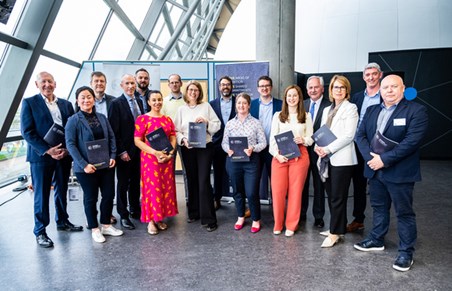Powering Net Zero Pact
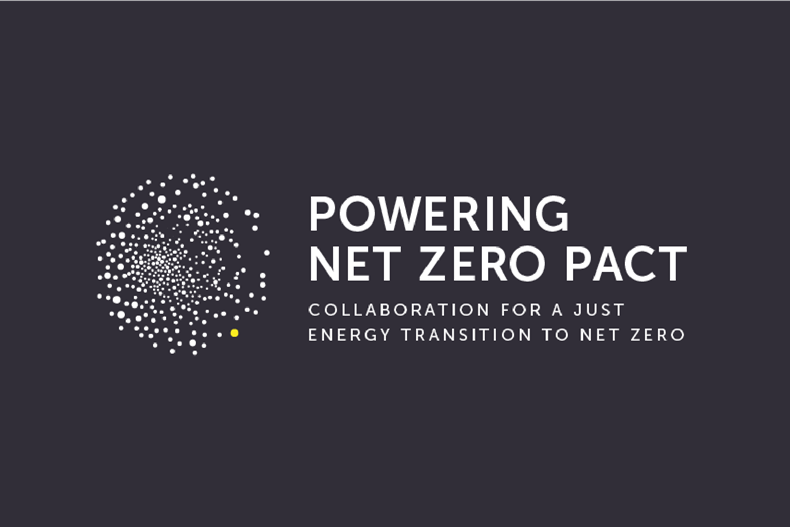
The Powering Net Zero Pact (‘the Pact’) is an initiative created by SSE with 10 other founding partners as a legacy of COP26. It brings together different companies across all tiers of the power sector – including civils, shipping, renewables, electrical engineering and others – that are committed to a fair and just transition to net zero carbon emissions. Together, signatories of the Pact operate across more than 120 countries, have a combined annual turnover of more than £75bn, are responsible for the livelihoods of over 350,000 employees, and work with more than 170,000 suppliers globally.
The Pact includes five areas of ambition, five shared commitments and five topics for collaboration, which together encourage the delivery of common ambitions for a sustainable future.

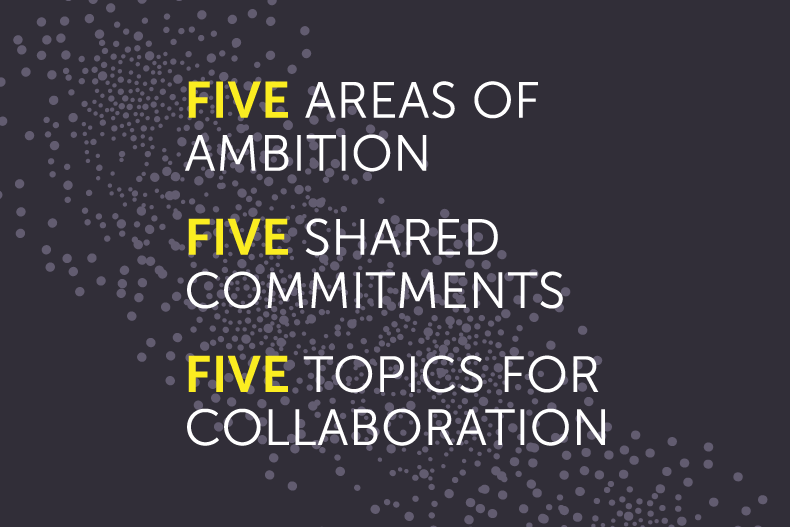
![]()
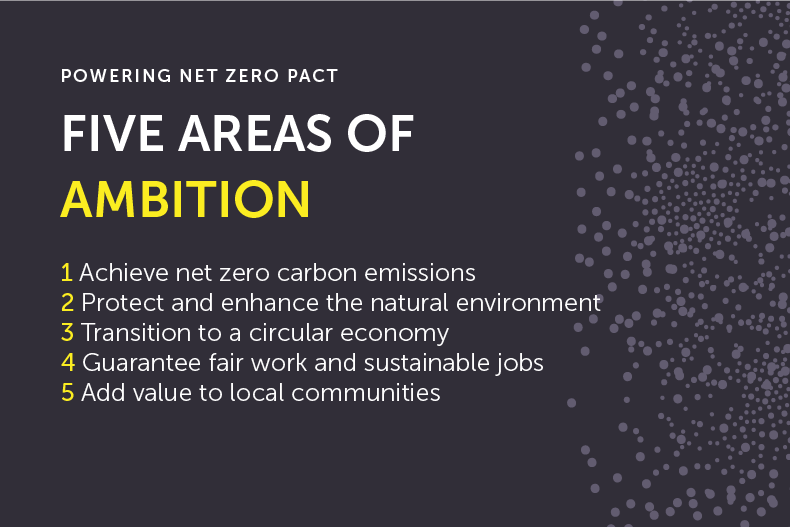
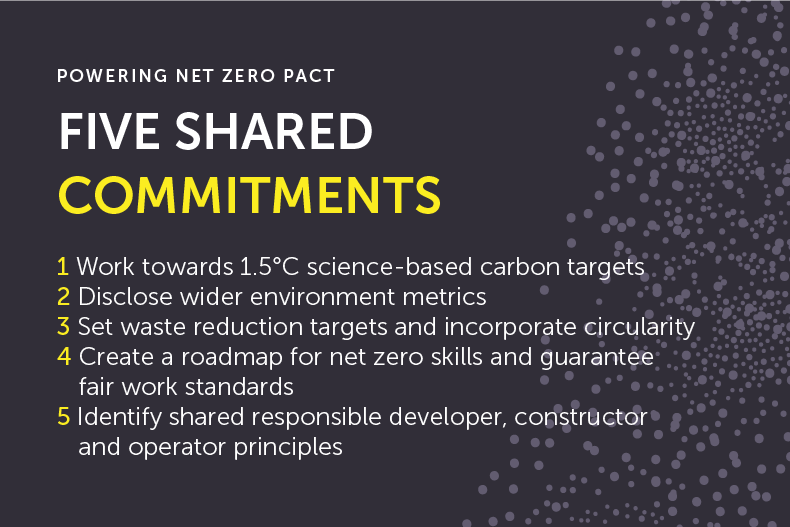
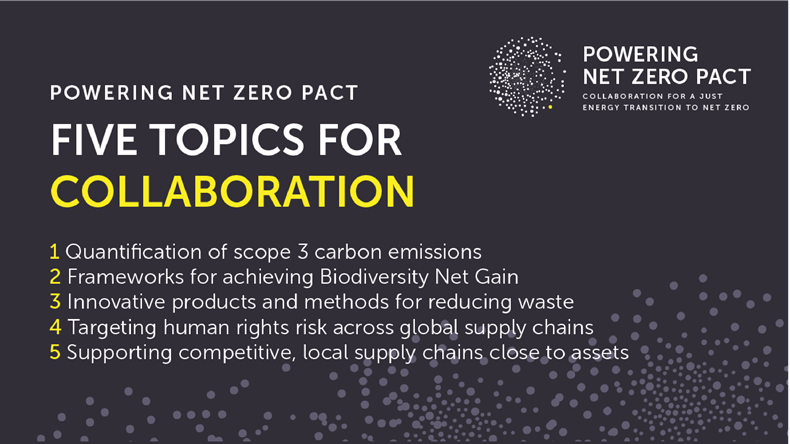
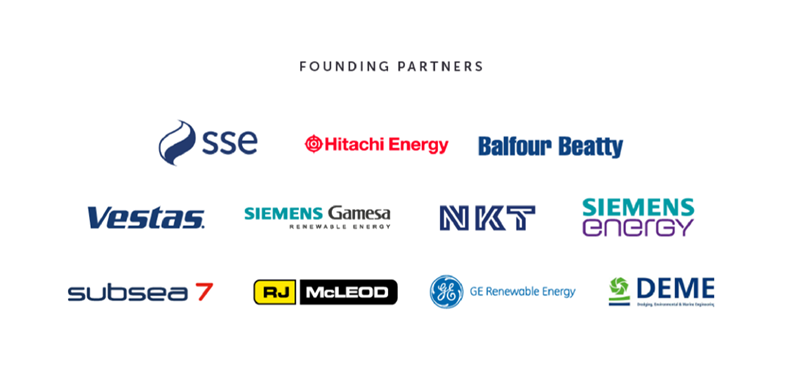
On the 10 May 2023 the Powering Net Zero Pact celebrates its first successful year. To mark the occasion and up hold its reporting commitments the Pact has launched its Year 1 Annual Report, outlining progress to date and future ambitions.
On 1 September 2022, SSE hosted a webinar for companies interested in joining the Pact. You can watch a recording of the webinar below, and get in touch at [email protected] if you have any further questions.
Interested in signing up to the Pact?
If your organisation wants to be involved in driving forward a just energy transition to net zero, then there are just a few simple requirements for Powering Net Zero Pact signatories:
- You are involved in some part of the power sector (it doesn’t matter which part!);
- You meet all five of the shared commitments (detailed below); and
- You are willing to participate in an action-focused working group for at least one of the five collaboration topics (detailed below).
To get involved contact [email protected].
5 AMBITIONS AREAS | 5 SHARED COMMITMENTS | 5 TOPICS FOR COLLABORATION |
Achieve net zero carbon emissions | Work towards science-based carbon targets, aligned to 1.5 degrees by 2025* | Develop understanding and quantification of scope 3 carbon emissions |
Protect and enhance the natural environment | By 2025, publicly disclose wider environment metrics, including water use, air quality and biodiversity, recognising the importance of the wider natural environment in getting to net zero | Share approaches to managing, protecting and enhancing biodiversity, with the aim of developing a framework for achieving Biodiversity Net Gain |
Transition to a circular economy | By 2025, set a waste reduction target through the incorporation of circularity | Develop innovative products and construction methods to increase resource efficiency and design out waste |
Guarantee fair work and sustainable jobs | Create a roadmap for the skills needed for net zero and guarantee fair work standards:
| Develop a targeted modern slavery and human rights abuse risk-based approach across global supply chains |
Add value to local communities | Identify and commit to common responsible developer, constructor, and operator principles by 2025 | Develop and nurture competitive, local supply chains close to assets |
UNDERPINNED BY A SHARED STRATEGIC APPROACH | ||
Business strategies aligned to the UN’s Sustainable Development Goals | Sustainability questions included in tenders and sustainability requirements rolled out through supply chains | Annual meeting of signatories to review commitments and continue ambitious progress |
*Where companies face significant technological and methodological challenges for setting SBTs, a commitment to working towards SBTs with an annual update on progress will be accepted.



